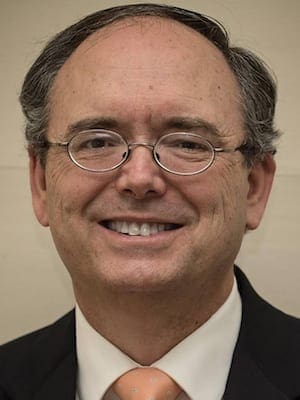I had the privilege of serving as an adjudicator for the extemporaneous speaking competition in the Region 5-AA Literary Meet.
The event took place in early March at Lamar County High School in Georgia.
The class of 1976, of which I am a member, was the first one to graduate from that campus. I still call it “the new high school.” They are about to build a newer one, which is good.
As I walked the hallowed halls of my alma mater, I reflected on the fact that I’d never before done so. I probably need to explain.
From 1970-74, boys went to school on one campus and girls on another. We all – boys and girls – spent the 1974-75 school year, which was my class’s junior year, at the campus where the boys had been going.
As that year wound down, we looked forward to spending our senior year at the brand-new Lamar County Comprehensive High School.
But late in my junior year, I decided to forego my senior year to enter Mercer University. So, I spent my high school senior year as a college freshman. I did come back to graduate with my class.
So, I couldn’t wax nostalgic as I wandered the halls of Lamar County High School on the day of the literary competition.
But I did find myself being grateful for the teachers who taught me and helped shape my life at both Gordon Grammar School and Forsyth Road School (a.k.a. Lamar County High School).
I’m the only member of my immediate family that attended Lamar County schools, but my wife and both of our children are products of public schools.
I support public education. I don’t mind paying property taxes because I know the money helps fund public schools.
I appreciate public education because it presents opportunities. It makes progress possible. It enables informed and productive citizenship.
It does all of that without charging tuition. It is available to any student regardless of race, gender or socioeconomic status.
If you are a child living in the United States, you can go to school. Public education gives us all a chance to become who we should be.
We need to support our public schools in every way we can. We should insist on having the very best leaders possible, from our local schools to the U.S. Department of Education.
We should encourage our teachers to strive constantly for excellence, both in their teaching and in their students’ learning, and we should pay them in line with the tremendous value they have.
The hallowed halls of my elementary school have long been torn down. Those of my high school years are abandoned and deteriorated.
Newer ones will soon replace those of the “new” high school that I both never attended and from which I graduated.
I am grateful for the public schools that helped me become who I am. For the sake of our children, our communities, our nation and our world, I hope that we will do all we can to help public education thrive.
What might our churches do to help our public schools?
1. We can pray for them.
Consider including your local school system and individual schools on your church’s prayer list. Communicate with your board of education, superintendent of schools and principals to assure them of your prayers.
2. We can provide volunteers.
We can encourage our members to sign up for mentoring or tutoring programs and ask school administrators and teachers if we can help in other ways.
3. We can promote community.
Our public schools belong to all of us and exist for the common good. Our churches can contribute to a better future for the communities of which we’re a part by encouraging our members to support public education.
4. We can provoke support of just policies.
Sound public education policy will always take into account the responsibility to offer education to all of our nation’s children. This includes those children whose socioeconomic condition complicates their educational pursuits.
By consistently teaching, preaching and living out the Christian concern for the oppressed and marginalized, the church can provoke people to support fair and equitable education policies.
These are a few of the many ways we can support, encourage and bless our public schools.
As a product of and proponent of public education, I encourage our churches to find their own best ways to help.
Michael Ruffin is curriculum editor with Smyth & Helwys Publishing in Macon, Georgia. A version of this column first appeared on his blog, On the Jericho Road, and is used with permission. You can follow him on Twitter @ruffinmichael.
Editor’s note: This article is part of a series on public education. Previous articles in the series are:
Pastors’ Group Supports Strong Education for All Kids by Charles Foster Johnson
Why Privatizing Public Schools Threatens Education by Diane Ravitch
Right Side of History: Removing Barriers to Education by Colin Harris
Ministering in Our Schools Prepares Kids for Future by Suzii Paynter

